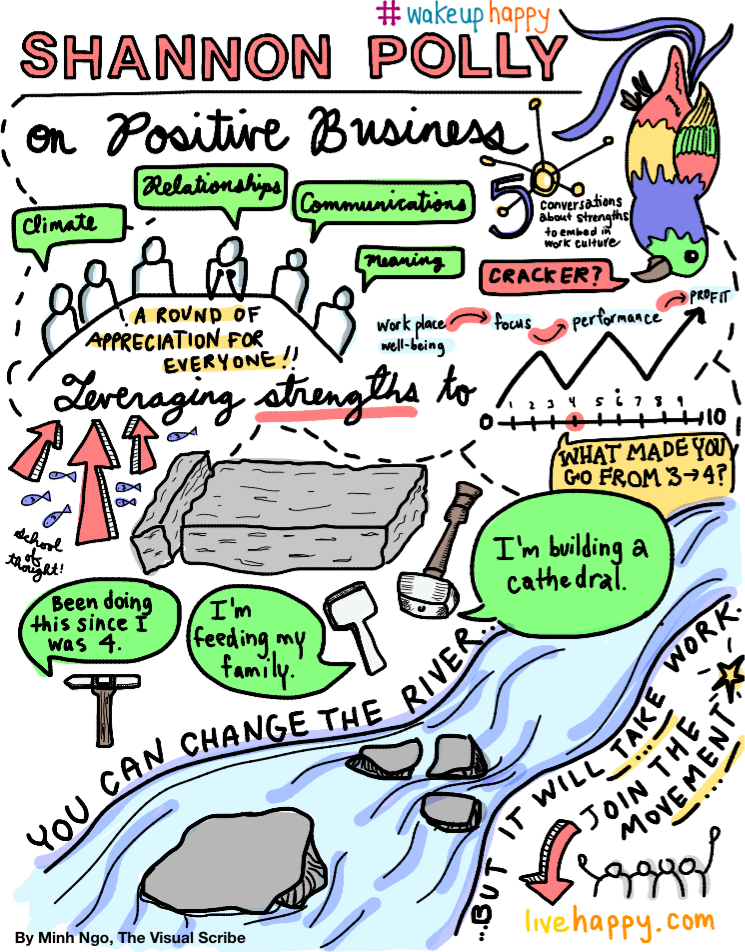 When you look at your colleagues, do you notice their best qualities? Even when you focus on others’ strengths, you may still feel like the organization is stuck. Maybe you’re mired in inefficient processes. Perhaps you contend with resistance to change. Do you see misalignment between your mission and daily practices? If you do, that’s normal! But it doesn’t have to stay that way. You can do better, because you’re already doing good.
When you look at your colleagues, do you notice their best qualities? Even when you focus on others’ strengths, you may still feel like the organization is stuck. Maybe you’re mired in inefficient processes. Perhaps you contend with resistance to change. Do you see misalignment between your mission and daily practices? If you do, that’s normal! But it doesn’t have to stay that way. You can do better, because you’re already doing good.
If you’re grateful for other’s good points, and yet the organization seems stalled or stuck in some way, conditions are ripe for Appreciative Inquiry (AI). An Appreciative Inquiry summit is an organizational process intended to catalyze positive transformation by noticing what’s already going well, envisioning an optimal future, and leveraging strengths and creativity to get there. This happens when as many stakeholders as possible come together to design an actionable strategy in answer to a central positive question or topic.
En vogue fields like Positive Organizational Scholarship (POS) have popularized promising-sounding processes like an AI summit, but what, if anything, can it actually do for you? In an interview with Gregor Nelson, seasoned AI facilitator and expert Shannon Polly offered insights on how the AI summit can work for you.
Benefits of the AI Summit
Savvy professionals like you want to see returns on their investments. Shannon explains why the AI summit is a valuable, viable tool for any and all groups:
• It’s well-designed – According to Shannon, the process always works if basic preconditions are met (see the next blog for more details). It happens in four phases:
1. Discovery: Recognize and appreciate what works
2. Dream: Imagine what might be
3. Design: Develop structures and systems to optimize what is and what might be
4. Destiny: Implement or the proposed design
If you have the resources and willingness for the AI process to work, it will!
1. It’s flexible – You can mute it in many different ways depending on the audience you have. You’ll likely get different layers of results depending on how much time you have, how many stakeholders you have in the room…but that the process itself always works.
2. It’s positive – The AI summit is positive in that it assumes that the organization and its associated individuals have strengths. The AI process focuses on what’s going right, and how you can capitalize on that to catalyze positive change in the entire organization.
3. It’s transformative – Rather than solving problems, AI transcends them by elevating the question from, “How do we fight this fire?” to, “How can we grow into the very best version of ourselves?” AI enables you to ascend to your highest mission, rather than merely weed-whacking mundane problems.
4. It’s actionable – The key to translating the AI summit into lasting success is to follow through and ask what you’re going to do with the information that you’ve created. You’ll start implementing your action plan in the final Destiny stage of the summit.
If you’re ready to lead your organization in unleashing its full positive strength, learn more from Shannon about how you can take advantage of AI and other positive psychology tools: http://positivebusinessdc.com/shannon-m-polly-mapp/
